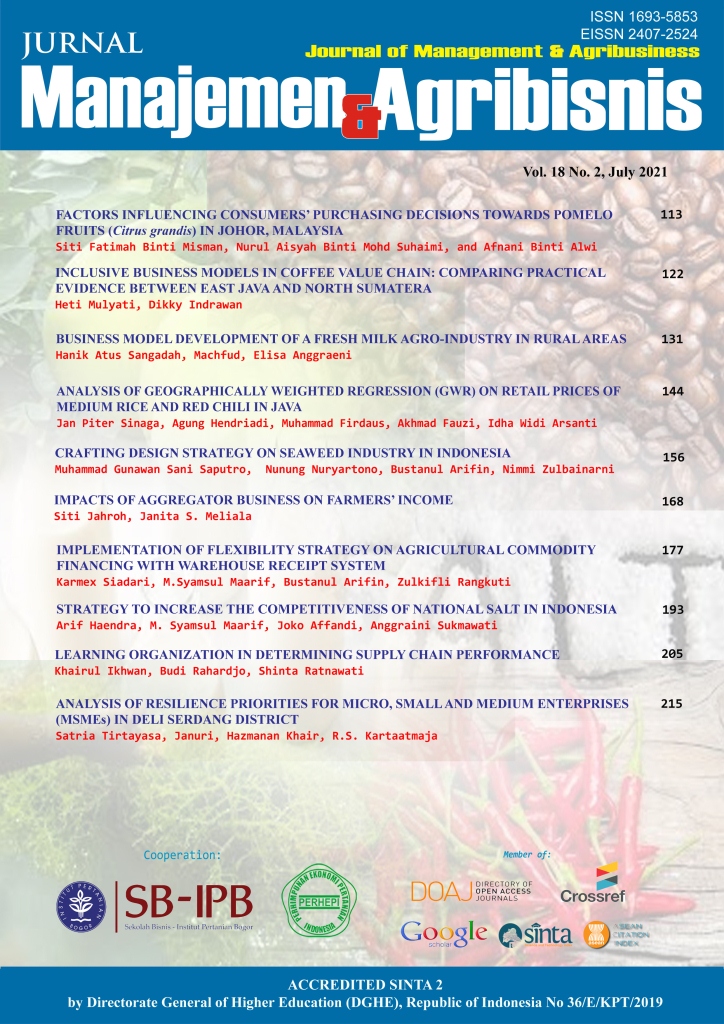Abstract
The global demand for seaweed is expected to increase in the coming years due to new product development using seaweed. There are many benefits of seaweed such as pharmaceuticals, cosmetics, food industries, textiles, paper, and bioenergy production. On the other hand, Indonesia, as the archipelago country with the second-longest coastline after Canada, is expected to achieve competitiveness so Indonesia benefit more from the seaweed industry. This study aims to get the landscape of the seaweed industry and to select strategies. The strategies are designed using the Structural Equation Modelling Method – Partial Least Square (SEM – PLS). The findings of this study are the competitive advantage of Indonesia's carrageenan-producing seaweed industry using descriptive statistical methods through the perception model show considered weak. The three main parameters of concern are assessed as low-cost leadership, ability to increase export value and self-sufficiency in meeting the needs of domestic seaweed. The analysis also shows that the influence of innovation and stakeholder support on increasing the competitive advantage of Indonesia's carrageenan-producing seaweed industry is considered significant. Innovation is represented by the latent variable attributes of innovation, communication channels and the role of change agents, which are concluded to have a significant effect both directly and indirectly on the industry's competitive advantage.
Keywords: seaweed industry, competitiveness, carrageenan, innovation, SEM-PLS, stakeholder support
Authors
Authors who publish with this journal agree to the following terms:
- Authors retain copyright and grant the journal right of first publication with the work simultaneously licensed under a Creative Commons Attribution License that allows others to share the work with an acknowledgement of the work's authorship and initial publication in this journal.
- Authors are able to enter into separate, additional contractual arrangements for the non-exclusive distribution of the journal's published version of the work (e.g., post it to an institutional repository or publish it in a book), with an acknowledgement of its initial publication in this journal.
- Authors are permitted and encouraged to post their work online (e.g., in institutional repositories or on their website) prior to and during the submission process, as it can lead to productive exchanges, as well as earlier and greater citation of published work (See The Effect of Open Access).

